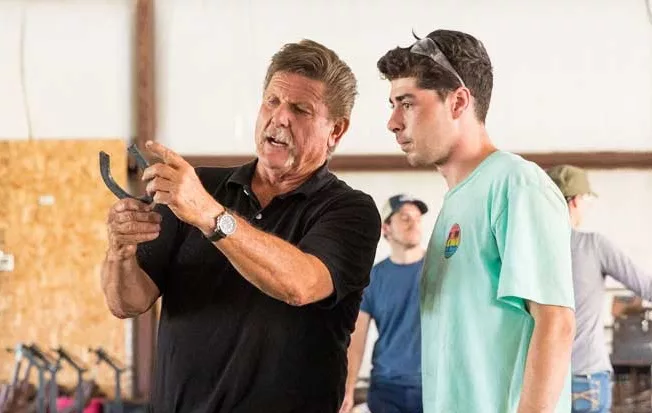New life has been breathed into a farrier school’s lawsuit that challenges California’s private postsecondary education regulation.
The 9th Circuit Court of Appeals reversed the decision of the United States Court for the Eastern District of California to dismiss a lawsuit that was brought by Pacific Coast Horseshoeing School (PCHS), Bob Smith and Esteban Narez. The lawsuit alleges that the California Private Postsecondary Education Act of 2009 violates the First Amendment rights of Smith and PCHS to teach farriery, as well as Narez’s right to learn.
“The district court determined that the Act regulates only conduct — the forming of an enrollment agreement — and any burdens on speech were incidental, resulting from the government’s regulation of commercial transactions,” according to the opinion of the 9th Circuit Court panel. “When viewed in its entirety, the Act controls more than contractual relations. It also regulates what kind of educational programs different institutions can offer to different students. … Moreover, the panel held that because content discrimination was apparent, the district court should have applied some form of heightened scrutiny.”
The opinion does not contest that California cannot regulate for-profit teaching, rather, it must demonstrate why PCHS cannot enroll Narez in its classes.
“It’s not enough for the government to say, ‘We think high-school dropouts aren’t sophisticated enough to learn horseshoeing,’” Institute for Justice attorney Keith Diggs, who is representing PCHS, Smith and Narez, told American Farriers Journal. “If that’s what the government thinks, it has to back it up with evidence.”
The state plans to file a petition for rehearing. A court granting a rehearing is rare. Should the court deny the rehearing, the case will return to district court where the state must argue its rationale.
“The state will have to come up with an evidence-backed argument for restricting PCHS from teaching horseshoeing to students without a high school diploma is ‘narrowly tailored to serve a compelling state interest,’” says Diggs, referring to the legal standard the state must meet. “We are confident that California will not be able to justify prohibiting Bob and PCHS from teaching, or Esteban learning, horseshoeing.”
The law’s aim was to stifle what’s referred to as “diploma mills” — schools that prey upon underqualified students by issuing bogus credentials after saddling them with a large student loan debt. While the law is modeled after a federal law regulating student loans, California law applies to all schools regardless of whether they accept student loans. PCHS does not accept student loans.
The lawsuit was filed after PCHS was prohibited by the state from enrolling Narez because he does not hold a high school diploma, a GED or successfully completed a government-approved exam that gauges proficiency in math, reading, writing and other criteria. In addition, the state threatened to shut down PCHS because it does not require that its students take the test.
“You don’t have to know algebra to shoe a horse,” Smith says. “You don’t have to know how to read a novel to shoe a horse. Horses don’t do math and horses don’t speak English. It makes no sense to require a high school education to learn a trade that was around for centuries before the printing press came along.”








